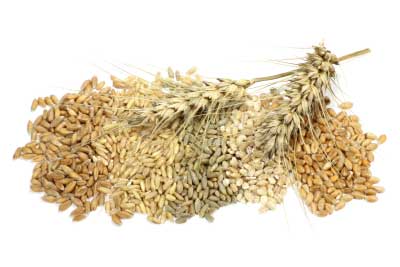Table of Contents
Arterosclerosis: Vegan Diet as therapy for cardiovascular disease?
It is the leading cause of death worldwide and, like diabetes, is closely linked to obesity and the metabolic syndrome: high blood pressure, dyslipidemia, insulin resistance and excess body weight go hand in hand with the number one death sentence. The term cardiovascular disease is very broad, and you probably associate it immediately with the dreaded heart attack. But what exactly is arteriosclerosis? Is it a dietary or lifestyle disease? Can Arteriosclerosis be reversed? In this article, you will learn the scientific facts about this disease and the possible influences of a vegan diet.
Did You Know…
…that despite improved survival rates, heart disease is still the leading cause of death worldwide? Specifically, around 17.9 million people do not survive the consequences of cardiovascular disease each year (WHO, 2021).
Arteriosclerosis: The Clinical Picture
Before we get to the question of whether a vegan diet has an impact on the development and treatment of atherosclerosis, let’s take a closer look at its pathological appearance.
Arteriosclerosis is defined as a chronic degenerative disease of the arteries and is therefore a type of vascular disease. It is a collective term for pathological vascular changes caused by deposits of blood lipids, immune cells, connective tissue, calcium and other substances in the blood on the walls of the vessels. This plaque hardens and narrows the vessels, preventing blood from flowing freely. Strictly speaking, atherosclerosis is a subgroup that refers to changes in the innermost layer of the blood vessel walls. Colloquially, however, the term is often used interchangeably with arteriosclerosis.
Cardiovascular Diseases
In the long run, the narrowed vessel walls have devastating consequences because they impede natural blood flow. This is because all of your cells, tissues and organs need a constant supply of oxygen, energy and essential nutrients. When blood flow to certain areas of a cell is interrupted, the cell is at risk of atrophy.
In coronary artery disease, arteriosclerosis occurs in the coronary arteries, the blood vessels that supply oxygen and nutrients to the heart muscle. A classic example is angina pectoris, commonly known as chest tightness, which manifests itself as chest pain. In its more severe form, it can even lead to heart failure, heart attack, or even sudden cardiac death.
If the vasoconstriction affects peripheral arteries, it can lead to stroke, for example, as a result of vascular occlusion in the brain. Peripheral arterial disease (PAD) is the result of circulatory disorders in the extremities, particularly the legs (Silbernagl and Lang, 2013). Thus, various parts of the body can suffer from plaque-constricted vessels.
Arteriosclerosis: Diagnosis
How does a physician diagnose this complex disease? Complex or multifactorial describes it very well, because the narrowed vessels with their devastating consequences should be examined from different angles.
Genetic predisposition is one factor that cannot be influenced and is increasingly being analyzed. In practical diagnostics, the doctor looks at family history. In addition, blood tests for lipids, especially cholesterol, give information about the risk of cardiovascular disease. Blood glucose levels are of interest as well, as diabetes mellitus is also associated with a high risk of vascular disease. Inflammatory markers such as C-reactive protein (CRP) and homocysteine levels are two other parameters that, when elevated, are associated with an increased risk of disease. Blood pressure and weight or BMI are also important in assessing risk factors.
Imaging techniques such as angiography are available to provide medical evidence of the actual vascular deposits. This is a radiological examination of the arteries, usually in the form of a computed tomography scan.
Arteriosclerosis: Causes
 Responsible for dangerous vascular changes are, on the one hand, factors that can be influenced, and on the other hand, some factors that cannot be influenced. Genetic predisposition, gender and older age are the factors that cannot be influenced. By the way, men are affected much more often than women.
Responsible for dangerous vascular changes are, on the one hand, factors that can be influenced, and on the other hand, some factors that cannot be influenced. Genetic predisposition, gender and older age are the factors that cannot be influenced. By the way, men are affected much more often than women.
The other major cause of arteriosclerosis is diet and lifestyle. Unhealthy eating habits, lack of exercise and the resulting overweight are reflected in blood lipid levels. In particular, increased LDL cholesterol, decreased HDL cholesterol and increased triglyceride levels correlate with the occurrence of vascular disease. Diabetes mellitus also leads to long-term damage to the blood vessels due to the undesirable reactions of sugar with other blood components. In addition, the risk factors of obesity, increased inflammation and high levels of homocysteine in the blood also play a role in vascular disease (Bagott and Tamura, 2015; Leitzmann and Keller, 2013).
Arteriosclerosis: What Influence Do (Vegan) Diet and Lifestyle Have?
So how can arteriosclerosis be influenced by diet and lifestyle? Evidence suggests that low fruit and vegetable intake, regular alcohol consumption, and especially high consumption of saturated and trans fatty acids and foods with a high glycemic index are dietary risk factors (Mente et al., 2009; Satija and Hu, 2018). Dietary cholesterol may also have negative effects at very high consumption levels, although the influence is not clearly understood (Carson et al., 2020).
Simply put, all of these unfavorable fat components are more likely to be found in foods of animal origin and highly processed products, and in small amounts in whole-food vegan diets. Some vegans like to use coconut oil. The saturated fatty acids it contains appear to have less of a positive effect on the blood lipid profile than oils with more unsaturated fatty acids, but less of a negative effect than, for example, butter (Vijayakumar et al., 2016; Eyres et al., 2016).
The counterparts to the “bad fat” are mainly omega-3 fatty acids. As anti-inflammatory and anti-atherosclerotic nutrients they can have a very beneficial effect on the heart and blood vessels, both by lowering undesirably high LDL cholesterol and excessive triglyceride levels and by counteracting the inflammatory process on the vessel walls. According to current knowledge, a high intake of 4 g per day of a specific form of EPA seems to have a positive effect on the cardiovascular system after a myocardial infarction (Elagizi et al., 2021). More research is needed on the preventive effects, but there is evidence that they are also beneficial (Innes and Calder, 2020). Irrespective of cardiovascular risk, it may be recommendable for other health-related reasons to supplement a vegan diet with DHA and EPA, or to use an oil with those, as they are not otherwise taken in.
High levels of fiber and a high nutrient density in the diet support the elimination of excess cholesterol. Whole grains, fruits and vegetables provide both. In addition, the phytochemicals found in plant foods have anti-inflammatory, metabolic-regulating, antioxidant, and many other valuable properties.
Nuts and soy, in particular, have been shown to have very effective effects on the cardiovascular system. In the case of soy, the effect is mainly attributed to the phytoestrogens (Luo et al., 2014; Sacks et al., 2006).
Table 1 shows individual food and nutrient groups that are recommended and should be avoided with regard to the risk of vascular disease. The importance of diet and lifestyle in arteriosclerosis also includes physical activity, nicotine abstinence, and stress reduction (Mozzafarian et al., 2008; van der Kooy et al., 2013; Huxley and Woodward, 2011).
| Recommended | Limit |
|---|---|
| Omega-3-Fatty Acids: linseed(oil), hempseed(oil), walnut(oil), algae oil |
Saturated Fatty Acids: products of animal origin, coconut oil, palmoil |
| Fruit and Vegetable | Trans-Fatty Acids: processed products, convenience meals |
| Whole Grains/-Products | Dietary Cholesterol: products of animal origin |
| Nuts | |
| Soy(-products): minimally processed |
Arteriosclerosis – Vegan Diet: What Science Says
The fact that diet and lifestyle play a major role in arteriosclerosis is also confirmed by a large number of scientific studies.
There are correlations between the blood lipid profile and the diet of different groups of people. In short, a plant-based, whole-food diet can reduce the development of cardiovascular disease. Studies indicate that people on vegetarian and vegan diets have lower total LDL cholesterol levels, lower blood pressure, and thus lower risk of coronary heart disease (Kahleova et al., 2018; Harland and Garton, 2016; McEvoy et al., 2012). There is also a negative relationship between cardiovascular risk and the amount of fruits, vegetables, and whole grains consumed. That is, the lower the intake of these foods, the higher the risk of disease (Aune et al., 2016).
An analysis of more than 100 studies in this context shows that elevated LDL cholesterol levels and excessive triglyceride levels can be reduced by 10–15 % on a vegetarian diet and by as much as 15–25 % on a purely vegan diet (Ferdowsian and Barnard, 2009).
 But can arteriosclerosis be reversed? Again, scientific literature provides an answer. Ornish and colleagues (1998) were able to show that a lifestyle change can visibly reduce existing vascular narrowing. After one year, there were demonstrable improvements, and after 5 years, these results increased again. The control group did not change their lifestyle and their cardiovascular condition worsened. A plant-based, low-fat diet (10 % of energy intake) was the basis of this change, along with exercise, tobacco cessation, stress management and psychosocial support. Other studies have also shown that existing coronary heart disease can be improved by a plant-based diet (Kahleova et al., 2018).
But can arteriosclerosis be reversed? Again, scientific literature provides an answer. Ornish and colleagues (1998) were able to show that a lifestyle change can visibly reduce existing vascular narrowing. After one year, there were demonstrable improvements, and after 5 years, these results increased again. The control group did not change their lifestyle and their cardiovascular condition worsened. A plant-based, low-fat diet (10 % of energy intake) was the basis of this change, along with exercise, tobacco cessation, stress management and psychosocial support. Other studies have also shown that existing coronary heart disease can be improved by a plant-based diet (Kahleova et al., 2018).
Treatment of Arteriosclerosis
Treatment focuses on blood lipid levels, which are a very clear indicator of other cardiovascular diseases. In particular, LDL cholesterol is closely monitored by the doctor. Depending on the patient’s disease state, the goal is to achieve a certain blood lipid level. Table 2 shows the target levels for blood lipids. These targets should be achieved primarily through dietary and lifestyle changes. If this therapeutic approach is unsuccessful, lipid-lowering drugs are used as a drug therapy.
Table 2: Recommended Blood Lipid Targets for the Prevention of Cardiovascular Disease (Mach et al., 2020)
| Target Level (mg/dl) |
|
|---|---|
| Cholesterol | < 200 |
| LDL-Cholesterol | |
| – very high CVD risk – high risk – moderate risk – low risk |
< 55 < 70 < 100 < 116 |
| Non-HDL-Cholesterol | |
| – very high risk – high risk – moderate risk |
< 85 < 100 < 130 |
| Apo B | |
| – very high risk – high risk – moderate risk |
< 65 < 80 < 100 |
| Triglycerides (as risk parameter) | < 150 |
Summary: Arteriosclerosis – a Vegan Diet for Heart and Vessels
In many cases, the precursors of obesity, hypertension or even diabetes lead to arteriosclerosis. If left untreated, arteriosclerosis increases the risk of heart attack and stroke. The high number of deaths due to vascular disease is a call to intervene in this frightening process.
As many scientific studies have shown, diet and lifestyle play an important role in arteriosclerosis. Minimally processed plant foods and moderate fat consumption can have not only a preventive effect, but even a therapeutic one, reversing arteriosclerosis. Fats should be consumed not only in moderation, but also selectively, that means quality before quantity. Foods rich in monounsaturated and polyunsaturated fatty acids, especially omega-3, are particularly beneficial for the cardiovascular system. The same goes for minimally processed soy products such as beans or tofu, and of course whole grains, vegetables, fruits, nuts, and seeds. Veganism can therefore potentially have a positive effect on the risk of cardiovascular disease – if the above mentioned food groups, and the nutrients they contain, are consumed in sufficient quantities.








Leave a Reply